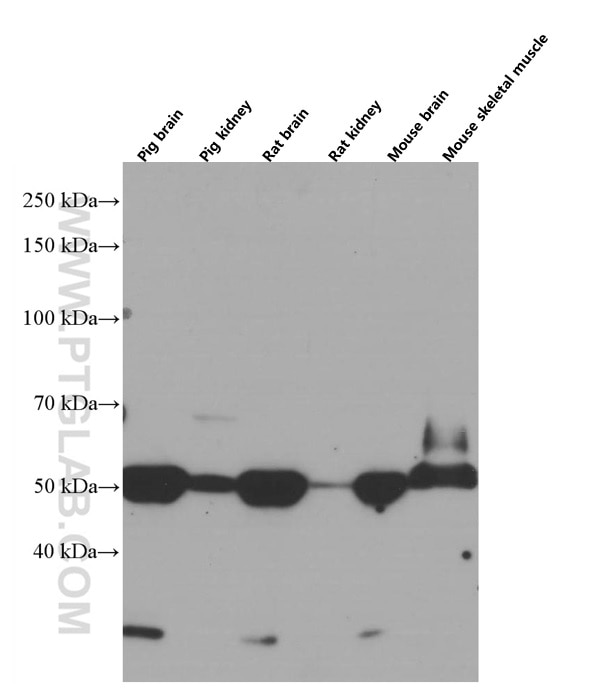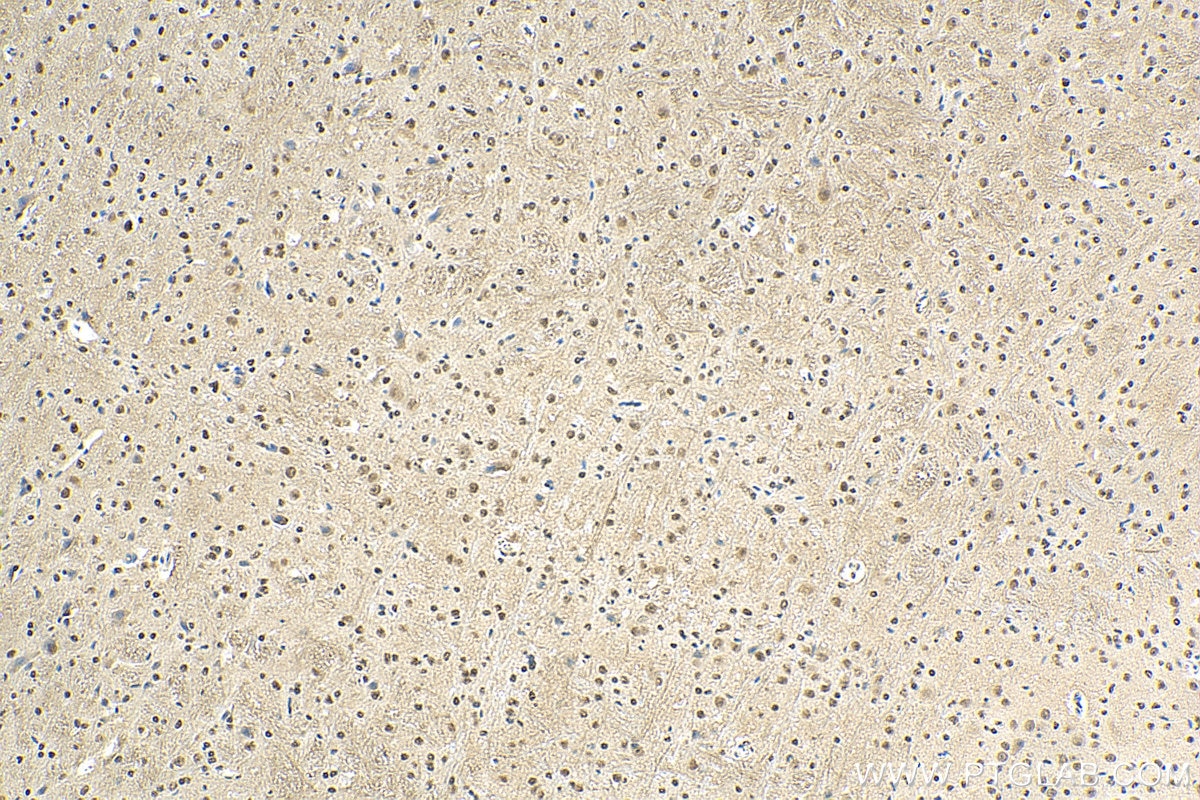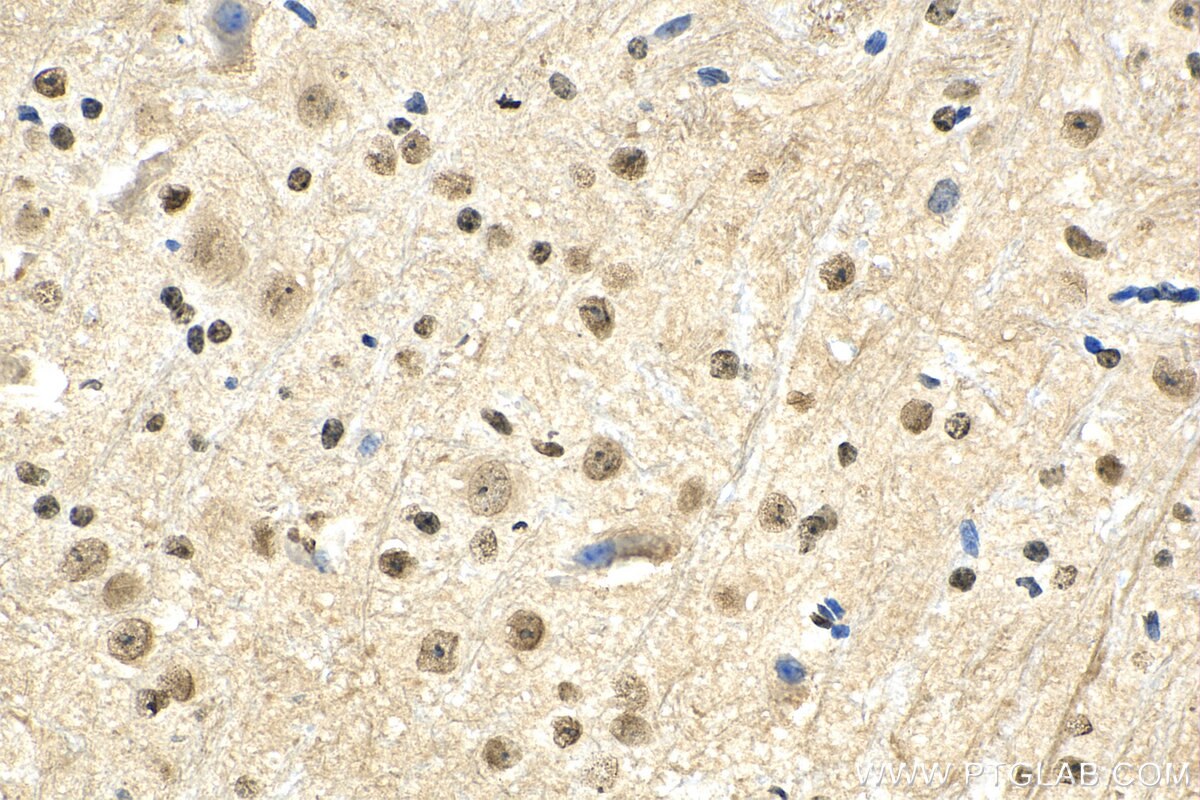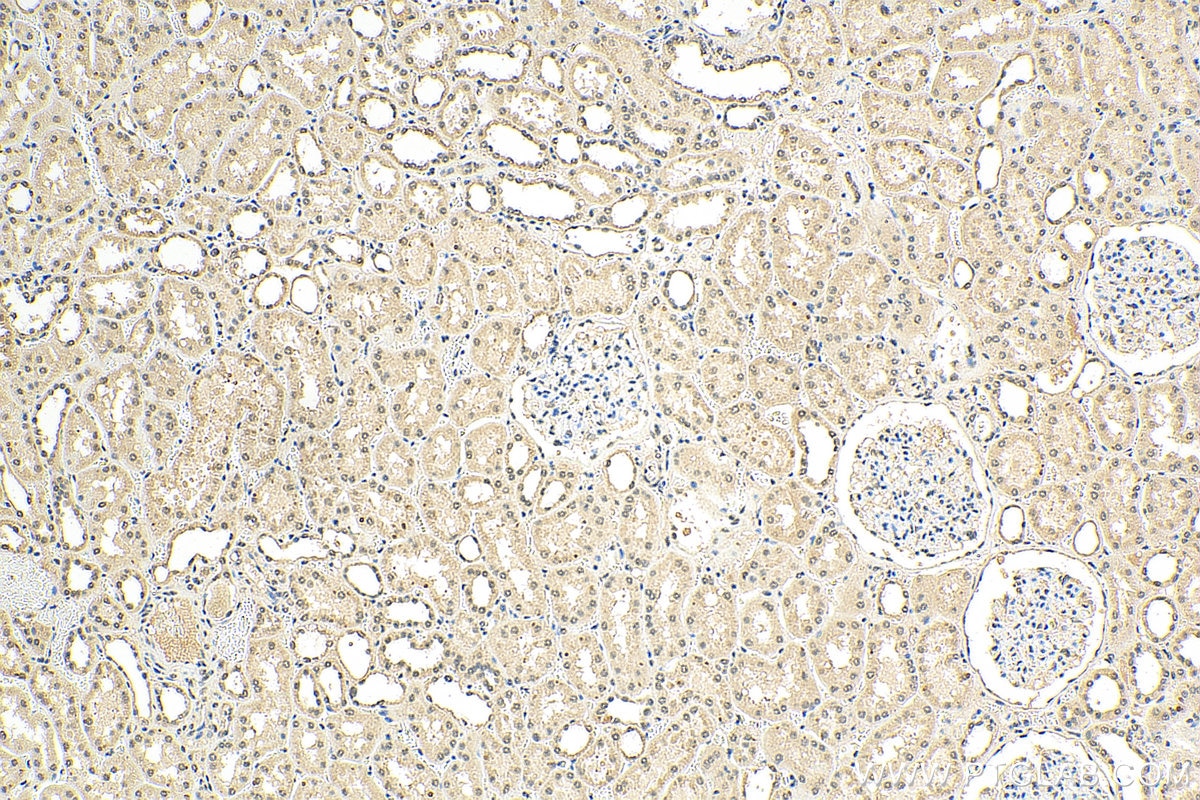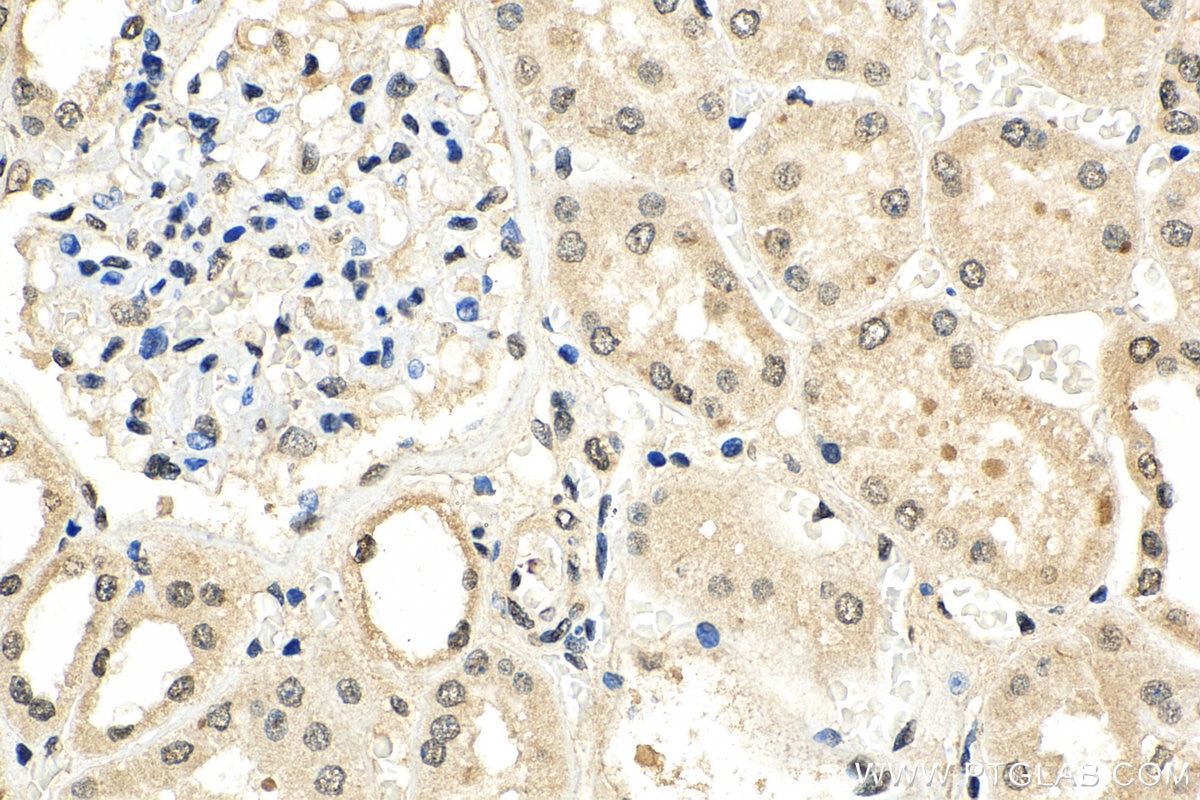SMAD7 Monoklonaler Antikörper
SMAD7 Monoklonal Antikörper für WB, IF, IHC, ELISA
Wirt / Isotyp
Maus / IgG2b
Getestete Reaktivität
Hausschwein, human, Maus, Ratte
Anwendung
WB, IHC, IF/ICC, ELISA
Konjugation
Unkonjugiert
CloneNo.
2B9A4
Kat-Nr. : 66478-1-Ig
Synonyme
Geprüfte Anwendungen
| Erfolgreiche Detektion in WB | Hausschwein-Hirngewebe, Maushirngewebe, Maus-Skelettmuskelgewebe, Hausschwein-Nierengewebe, Rattenhirngewebe, Rattennierengewebe |
| Erfolgreiche Detektion in IHC | Maus-Cerebellum-Gewebe, humanes Nierengewebe Hinweis: Antigendemaskierung mit TE-Puffer pH 9,0 empfohlen. (*) Wahlweise kann die Antigendemaskierung auch mit Citratpuffer pH 6,0 erfolgen. |
Empfohlene Verdünnung
| Anwendung | Verdünnung |
|---|---|
| Western Blot (WB) | WB : 1:500-1:3000 |
| Immunhistochemie (IHC) | IHC : 1:50-1:500 |
| It is recommended that this reagent should be titrated in each testing system to obtain optimal results. | |
| Sample-dependent, check data in validation data gallery | |
Veröffentlichte Anwendungen
| KD/KO | See 1 publications below |
| WB | See 11 publications below |
Produktinformation
66478-1-Ig bindet in WB, IHC, IF/ICC, ELISA SMAD7 und zeigt Reaktivität mit Hausschwein, human, Maus, Ratten
| Getestete Reaktivität | Hausschwein, human, Maus, Ratte |
| In Publikationen genannte Reaktivität | human, Maus, Ratte |
| Wirt / Isotyp | Maus / IgG2b |
| Klonalität | Monoklonal |
| Typ | Antikörper |
| Immunogen | SMAD7 fusion protein Ag13688 |
| Vollständiger Name | SMAD family member 7 |
| Berechnetes Molekulargewicht | 426 aa, 46 kDa |
| Beobachtetes Molekulargewicht | 50 kDa |
| GenBank-Zugangsnummer | BC074819 |
| Gene symbol | SMAD7 |
| Gene ID (NCBI) | 4092 |
| Konjugation | Unkonjugiert |
| Form | Liquid |
| Reinigungsmethode | Protein-A-Reinigung |
| Lagerungspuffer | PBS with 0.02% sodium azide and 50% glycerol |
| Lagerungsbedingungen | Bei -20°C lagern. Nach dem Versand ein Jahr lang stabil Aliquotieren ist bei -20oC Lagerung nicht notwendig. 20ul Größen enthalten 0,1% BSA. |
Hintergrundinformationen
SMAD7, also named as Mothers against decapentaplegic homolog 7, is a 426 amino acid protein, which belongs to the dwarfin/SMAD family. SMAD7 Interaction with NEDD4L or RNF111 induces translocation from the nucleus to the cytoplasm (PubMed:16601693). TGF-beta stimulates its translocation from the nucleus to the cytoplasm. PDPK1 inhibits its translocation from the nucleus to the cytoplasm in response to TGF-beta (PubMed:17327236). SMAD7 as antagonist of signaling by TGF-beta (transforming growth factor) type 1 receptor superfamily members has been shown to inhibit TGF-beta (Transforming growth factor) and activin signaling by associating with their receptors thus preventing SMAD2 access. SMAD7 functions as an adapter to recruit SMURF2 to the TGF-beta receptor complex and also acts by recruiting the PPP1R15A-PP1 complex to TGFBR1, which promotes its dephosphorylation. SMAD7 positively regulates PDPK1 kinase activity by stimulating its dissociation from the 14-3-3 protein YWHAQ which acts as a negative regulator.
Protokolle
| PRODUKTSPEZIFISCHE PROTOKOLLE | |
|---|---|
| WB protocol for SMAD7 antibody 66478-1-Ig | Protokoll herunterladen |
| IHC protocol for SMAD7 antibody 66478-1-Ig | Protokoll herunterladenl |
| STANDARD-PROTOKOLLE | |
|---|---|
| Klicken Sie hier, um unsere Standardprotokolle anzuzeigen |
Publikationen
| Species | Application | Title |
|---|---|---|
Acta Pharmacol Sin The multifunctional adaptor protein HIP-55 couples Smad7 to accelerate TGF-β type I receptor degradation.
| ||
Aging (Albany NY) LINC00968 can inhibit the progression of lung adenocarcinoma through the miR-21-5p/SMAD7 signal axis. | ||
Biomed Pharmacother Yu Gan Long reduces rat liver fibrosis by blocking TGF-β1/Smad pathway and modulating the immunity. | ||
J Ethnopharmacol Wu-Mei-Wan ameliorates chronic colitis-associated intestinal fibrosis through inhibiting fibroblast activation. | ||
Exp Cell Res Exosomes derived from thymic stromal lymphopoietin-treated dendritic cells regulate T helper 17/regulatory T cell differentiation via miR-21/Smad7 axis. | ||
Biochem Biophys Res Commun Emodin ameliorates tubulointerstitial fibrosis in obstructed kidneys by inhibiting EZH2. |
